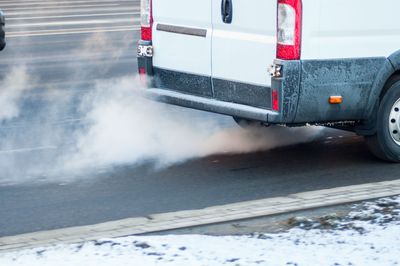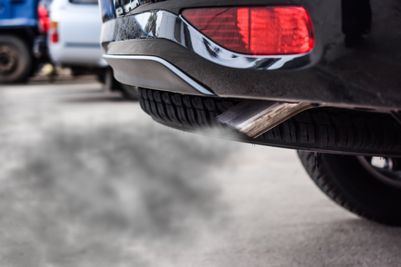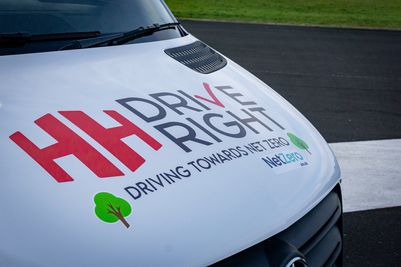Yorkshire & Humberside Motorists Don’t Count the Cost of Engine Idling
Published:
Read Time: 4 mins
People in Yorkshire and Humberside are the least likely in the UK to believe turning a car engine off, when not moving, could save enough to make it worth doing. 47% held this opinion, just ahead of 46% in Wales, who felt the same. Both regions were above the national average of 37%.
The statistics come from an independent survey, commissioned by Yorkshire-based vehicle technology specialist, HH Driveright, which founded Idling Awareness Day earlier this year and which has a device – the GM2020 - which identifies engine idling in commercial fleets.
The truth is that engine idling is hitting a large proportion of motorists in the pocket, totally unnecessarily, when many households’ budgets are under constant review. HH Driveright says, unless you are in the habit of turning off your engine when not moving in traffic, it is costing money, no matter what sort of vehicle you drive or how far you travel.
Figures published by Renfrewshire Council suggest every ten minutes of engine idling costs at least one-tenth of a litre in wasted fuel. With the cost per litre of petrol being around £1.57 at present and that of diesel around £1.61, every ten minutes of keeping your engine running unnecessarily is costing you between 15 and 16 pence for every 10 minutes. And that could be per car in your household, if nobody turns off the engine.
That bad habit seems to be a norm for many. One-in-five (20%) of those in Yorkshire and Humberside whose cars are equipped with in-built stop-and-start technology to automatically turn the engine off when not moving, told the HH Driveright survey they override this.
Ten minutes per day of engine idling is actually very little. The average time to be stuck at a traffic light is 75 seconds – each and every time you arrive at one. Arrive at a level crossing and you could be there at least 66 seconds, awaiting a train.
Most of us crawl along in commuter or school traffic five days a week. Many of us get stopped by incidents and jams. Roadwork traffic signals are everywhere. We idle whilst picking up and dropping off. On average, we run engines for 10 minutes when trying to defrost vehicles.
Even if your household cumulatively only idled for 20 minutes per day, it would be costing you 30 pence a day in wasted petrol or 32 pence per day in diesel, even at an average pump price. Some garages, and all motorway service stations, charge far more. Even if you only use the car on that basis for five days a week, that’s costing you between £6 and £6.40 per month in wasted fuel. Idle for longer per day, as a household, and you can do the sums.
Even at that very low level of idling of 20 minutes per day, you are wasting money that could take you on a 24 to 49-mile journey, according to how many litres per gallon you get out of your car.
So what is engine idling achieving? It’s actually just pumping out twice as many emissions as generated from moving cars. It costs the planet dear. An idling car can fill up to 150 balloons with harmful emissions every minute. If drivers stopped idling for just three minutes of their day, every day of the year, it would save 1.4 million tonnes in carbon dioxide emissions. Those emissions are causing the deaths of around 4000 people per year.
“Every one of us has a vested interest in stopping engine idling,” says Rebecca Hall, managing director of HH Driveright. “Our research shows many Yorkshire and Humberside motorists think it not worthwhile and yet savings can be made. When we calculate those for a commercial vehicle, a Ford Transit Van, which idles for one hour per day, is wasting £2047.50 a year.
“If people don’t care about having extra cash in their pocket – and also saving on the costs of vehicle repairs for spark plugs, cylinders and exhausts, also made more likely by engine idling – they should at least think about the cost to public health and the environment. It is literally costing some people their lives, just because many drivers cannot be bothered to turn off their vehicle when it is going nowhere.”
HH Driveright hopes to get motorists and commercial drivers to really think about engine idling and what it is costing. Nevertheless, with 44% of people in Yorkshire and Humberside unsure what ‘engine idling’ is, despite it being banned by Highway Code rule 123 and carrying the potential for fines to be levied, there is a long way to go.
Ends
Editors notes
HH Driveright is an award-winning vehicle security and compliance specialist, with exciting and advanced solutions for van drivers, caravan owners and car drivers wishing to protect their vehicles, livelihood and reputation. It won the 'Keeping Your Show on the Road' award at the 2022 Logistics UK Van Awards and is continually finding ways to achieve that goal, to keep vehicles and their drivers or owners safe and protected.



